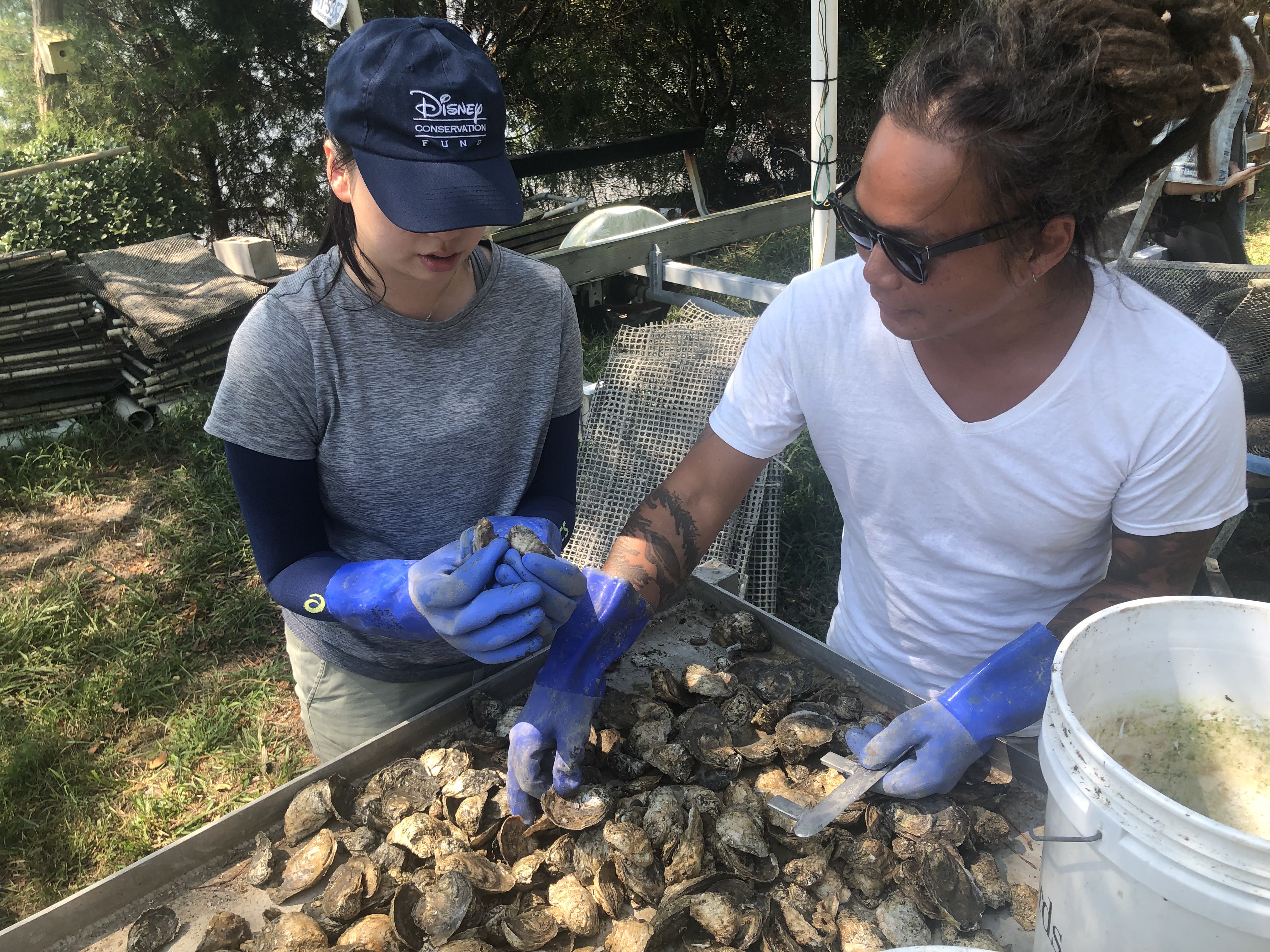
In a cross-sectoral collaboration with oyster and fish farmers, academics, schools, NGOs, and religious groups, members of the State Key Laboratory of Marine Pollution (SKLMP), City University of Hong Kong, are translating ecological research into a community-based project called ‘Oysters Save Our Seas’ (Oyster SOS) that aims to improve water quality and enhance marine biodiversity through restoring oyster reefs.
Why Oysters?
Oysters provide crucial ecosystem services. They form reef habitats for marine life and protect shorelines against storms. As filter feeders, an adult oyster could filter as much as 180 liters of seawater a day by eating microscopic algae and suspended organic matter in the water column. As the Director of SKLMP, Prof. Kenneth Leung has noted, “If we put enough oysters, they can effectively improve water quality via biofiltration and reduce chances of toxic algal bloom.”
Yet, 85% of oyster reefs are gone globally due to over-dredging and habitat loss. Hence, the goal of Oyster SOS is to restore oyster reefs through ecological restoration, scientific research, STEM & environmental education, and public engagement.
Oyster SOS Activities
Activities
Working with teachers, Oyster SOS will design project-based studies and field activities for local primary and secondary students where they can help restore oyster reefs and conduct biodiversity surveys. Such direct learning experience fosters students’ connection and appreciation to the natural environment.
Public Engagement
Oyster SOS organises education events to raise public awareness on oyster reef restoration. We have held workshops at the Hong Kong Eco-Film Festival and will set up temporary displays and talks at local partners’ venues. Oyster shells are also recycled from local restaurants to be used as substrates for oyster larvae to grow after being treated and weathered.
Stakeholder Engagement
Working with the oyster farming community, our activities will introduce the history and current status of local oyster cultivation which is one of Hong Kong’s intangible cultural heritage. The project will also work with religious groups to guide the deployment of native oyster species as the main organisms for mercy releases.
Overseas Exchange & Learning
Oyster SOS also joined a field study delegation on oyster reef restoration and oyster farming organised by The Nature Conversancy to visit oyster reef restoration sites in New York and the Chesapeake Bay, United States. Through understanding the challenges and success of their projects and exchanging know-hows with local leaders, we learnt from their experience to better plan for our restoration project.